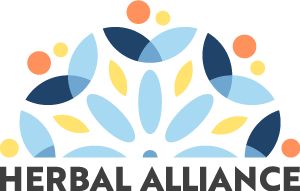1. Summary
How to learn about herbalism
The world of herbalism includers a diverse range of specialities and expertise; growers, wildcrafters, medicine makers, educators, historians, researchers, cooks, lifelong enthusiasts and also the clinical practitioners.

Pathways to becoming a herbalist practitioner
In order to become a herbalist you need to decide on the tradition of herbal medicine you are most interested in as well as the style of teaching best suited to you. Some people like a more reductive biomedical or scientific approach and some prefer a more experiential and relational approach.
You also need to decide on the tradition of herbalism you wish to specialise in-Chinese Herbal Medicine, Ayurveda or Western traditions for example, though there other choices too.
The purpose of undertaking a training is to gain the core competencies needed to be a herbalist of quality and of practitioner capacities.
Evaluation of competencies
The core competencies needed to become a proficient herbalist include most the following:
1. Safety
Herbal safety, red flags, drug herb interactions, posology or dosage facts.
2. Professionalism-legal and ethical practice
Understanding the scope and limit of practice.
3. Knowledge of Materia Medica
The herbs used in one’s tradition, and sources of sustainable supply of herbs
4. The capacity to study and integrate evidence from different knowledge sources
Including traditional, creative, and scientific. Both literary sources and direct experience.
5. The capacity to assess and diagnose
By learning about a variety of diagnostic tools and methods
6. A knowledge of medicine making
Including pharmacy, pharmacognosy and dispensing.
7. Nurturing diversity and inclusivity and developing a Culturally appropriate paradigm
8. Patient-centred care-integrative and holistic
Acknowledging the importance of physical, emotional, mental and spiritual aspects of wellness. The capacity to offer advice on diet, lifestyle and other factors contributing to health and wellness in an achievable manner taking account of financial, cultural and other factors.
9. Reflective practice
10. Practice-based learning.
11. Sustainability-ecological, social and economic.
12. Communication skills.

Better Health Through Collaboration
Sign up to gain access to our community portal for Professional Herbalists in the UK & Ireland
